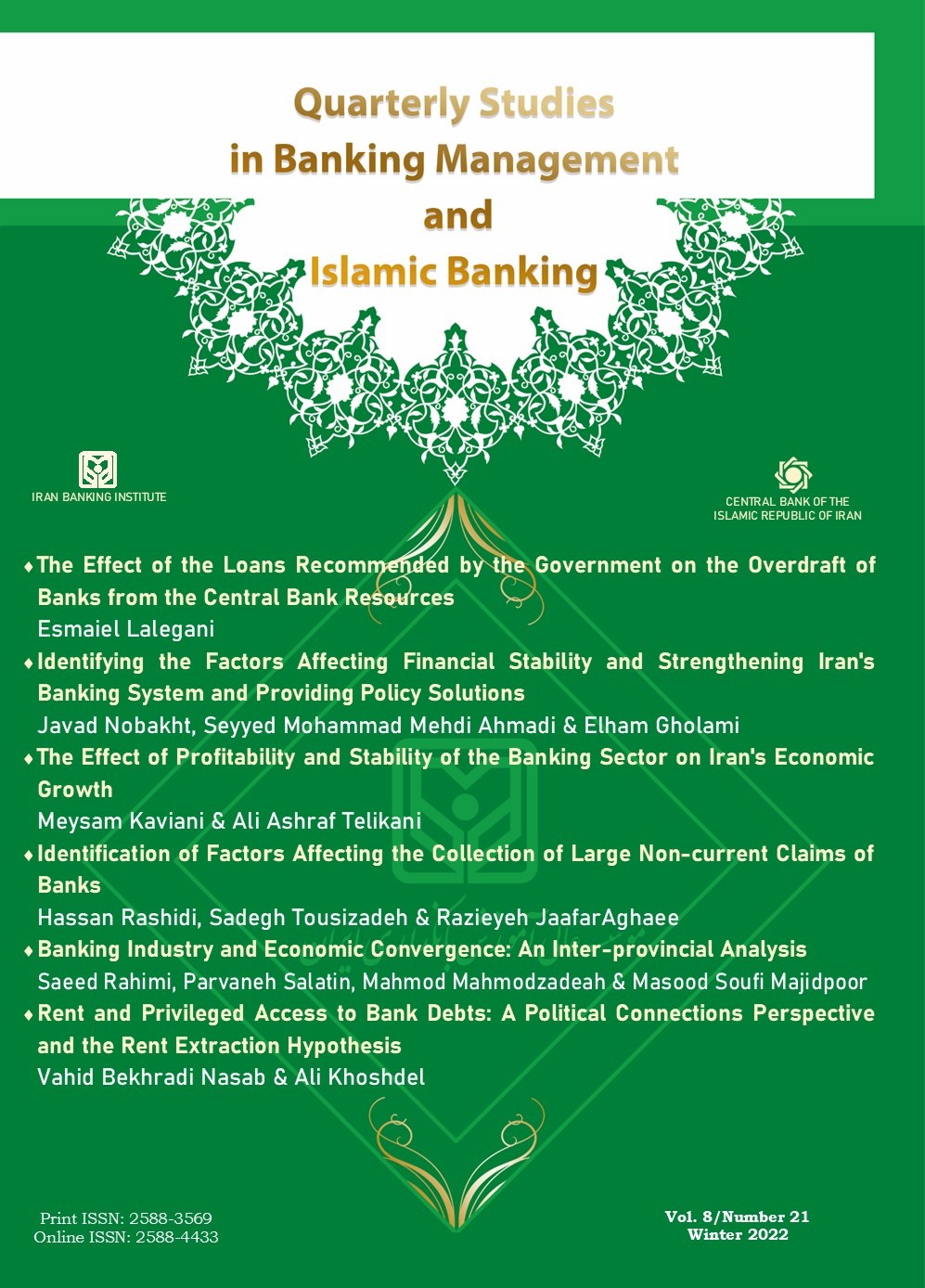Document Type : Original Article
Authors
1 Islamic Azad University, Firoozkooh, Iran
2 Assistant Professor, Department of Economics, Firoozkooh Branch, Islamic Azad University, Firoozkooh,
3 Assistant Professor, Department of Economics, Firoozkooh Branch, Islamic Azad University, Firoozkooh, Iran
4 Associate Professor, Department of Economics, Firoozkooh Branch, Islamic Azad University, Firoozkooh, Iran
Abstract
This study, using spatial econometrics, investigated the effect of bank efficiency and monetary indiscipline on the economic convergence of provinces in the period of 1389 to 1398. The estimation results of the models revealed that the ratio of facilities to bank deposits, as an indicator of banking efficiency and monetary indiscipline, has a negative and significant effect on economic convergence in the provinces investigated. Therefore, the banking system was not able to play an influential role in economic convergence. The absolute speed of convergence was shown to be 0.048; in the conditional models, with the values of 0.269 and 0.254, the speed of convergence of the provinces was higher. However, with the introduction of banking variables, the speed of convergence decreased. In other words, on a yearly basis, 4.8% in the absolute convergence mode and 26.9% and 25.4% in the conditional convergence mode, the economic gap of the provinces is fixed to a stable state. Moreover, real capital stock and taxes have a positive and significant effect, whereas human capital and misery index have a negative and significant effect on economic convergence. Examining the effects of spillovers in 1398 indicated that the spillover effect of banking efficiency on neighboring provinces was positive. Also, with the increase in the distance between the provinces, the spillover effect decreased. In fact, the effects of spillover on neighboring provinces are more than those that are further away.
Keywords

